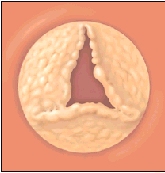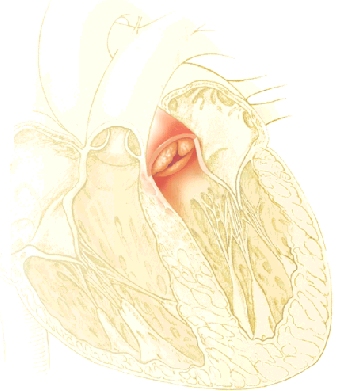Welcome to the medical library of Hartford Cardiology Group. The information shared below is provided to you as an educational and informational source only and is not intended to replace a medical examination or consultation, or medical advice given to you by a physician or medical professional.
If you have any questions or concerns regarding any condition or treatment, please contact Hartford Cardiology Group. To schedule an appointment please call (860-547-1489) or [email protected].
Heart Valve Problems: Aortic Stenosis
Aortic stenosis means your aortic valve has a problem opening. The left ventricle has to work harder to push the blood through the valve. In some cases, this extra work will make the muscle of the ventricle thicken. In time, the extra work can tire the heart and cause the heart muscle to weaken. This type of stenosis can quickly get worse.
Possible Causes
Deposits can form on the aortic valve as you get older. These deposits make the valve stiff and hard to open. In some cases, you may have been born with a problem aortic valve. Or, your aortic valve may have been damaged by rheumatic fever or a heart infection.

Open aortic valve with stenosis (viewed from above).
In many cases, treatment won’t be needed unless you have symptoms. If you do have symptoms, medications may help relieve them. If the stenosis is severe, your doctor may recommend surgery to replace the valve, even if you don’t have symptoms.

